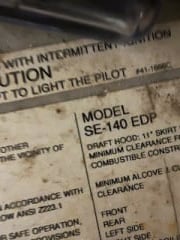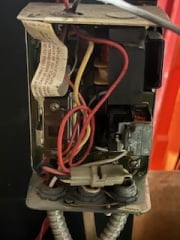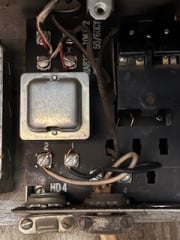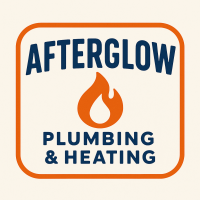House is Overheating
Hi, I have an older boiler, a slant fin se140 edp. Yesterday, I turned it on for the first time this year and the house became very hot, like 86 degrees. We have 4 zones, and the thermostats are pretty new. I reset all the thermostats and double checked the settings to try to eliminate them as the problem. The house overheated again throughout the night. The 4 diverter valves are also only a couple years old. Even with all of the thermostats turned off it seems as though the diverters are open and hot water continues to circulate. Only one zone seems to be working correctly, the second floor zone. The boiler temperature and pressure remain within normal range. The 24v transformers are all outputting the correct voltage. Is there a component of the boiler that could be keeping the diverters open and the furnace running without any input from the thermostats? My research says it could maybe be the control panel (aquastat-picture attached), but I’m seeking some advice for anything I might be able to check or what else it might be because that control is hard to find and $600. Could it be the zone switching relay? (Picture also attached) Thanks so much for your help.
Comments
-
I believe that what you’re calling “diverter valves” are actually zone valves.
The aquastat does not control these, the thermostats do, and their end switches turn on the pump control and that turns on the boiler.
Some better pics from further back that encompass the boiler, its near piping and controls may be more helpful, but diagnosing a control issue requires a multi meter and the knowledge of how to use it.
Bob Boan
You can choose to do what you want, but you cannot choose the consequences.1 -
The boiler should not be running at all unless there is a thermostat call (unless I'm mistaken and this is a hot start unit). Disconnect one of the wires between the switching relay end switch and boiler TT terminals, and see if the boiler stops. If so, it's a control issue. If not, it's a boiler issue.
0 -
Thanks for the replies. I believe I have found the issue. I tested each of the zone valves to see if they are opening/closing completely with the furnace off using the thermostats. The zone valves in the areas of the house that overheated barely move back and forth. I assume since they don’t seem to be closing all the way that the furnace is never getting a signal to shut off and keeps running. Oddly, the 3 zone valves that aren’t working well (Honeywell) are only about 5 years old, and the one that is working fine is decades old. Seems like it is a common problem with the Honeywell to fail prematurely. I’m just going to replace them. Are there any brands (other than Honeywell) that you recommend?
0 -
-
Well that is an interesting discussion to get to the source of a problem with a Honeywell Zone Valve. I see two different devices that are supposed to operate the circulator. One is a Honeywell L8148 Aquastat relay and the other is a RA832 Switching relay. that usually indicated that you have two circulator pumps. But by the sound of things you may have only one circulator pump and someone with little knowledge of controls added the switching relay for not good reason. This would not be the first time.
So How many circulator pumps do you have on your boiler system?
If you have more than one circulator pump, where do the two or more different pumps force the water to? perhaps one to the heating system and one to the DHW system. That would make sense, but you don't need the zone valve for the DHW zone. That would be controlled by a Flow Control Valve or a "FloCheck". But I have seen that mistake in design happen also. Using a Zone Valve for a FloCheck. Who knows what those that have no clue will do to make it work in their mind and then spend your money to make it happen.
- How many thermostats?
- How many zone valves?
- How many circulators?
- How many boilers?
- How many gas valves?
Can you take a picture far enough back to see the entire boiler and near boiler piping with the zone valves, circulator(s) and pipes in one shot?
Edward Young Retired
After you make that expensive repair and you still have the same problem, What will you check next?
0 -
How "pretty new" are the thermostats? After last winter "pretty new"?
One bad zone after 5 years, ok. Two bad zone valves at the same time after 5 years, not bloody likely. THREE bad zone valves at the same time after 5 years. That's LOTTO jackpot odds.
0 -
-
Three broken zone valves at the same time and they're all under 5 years old is like hitting the bad luck lottery. IOW, not very likely.
0 -
Unlikely to be a mechanical issue. VERY likely to be a control issue. Find out what is controlling the zone valves… May be a wiring problem — particularly if this showed up only after the new thermostats were installed.
Br. Jamie, osb
Building superintendent/caretaker, 7200 sq. ft. historic house museum with dependencies in New England0 -
Installer error is the last thing you should look for. Because when you get there and find the problem, you stop looking.
Edward Young Retired
After you make that expensive repair and you still have the same problem, What will you check next?
0 -
I would disconnect the "Bad" zone valve end switch and put an OHM meter across the end switch wires. Then operate the thermostat to drive the zone valve open and closed.
With the valve open the end switch should be closed and when the valve is closed the end switch should be open
0 -
Thanks for all the replies. I just got around to removing the zone valves, and yes, two of them are bad. They completely froze up and the gears stripped out. The third and fourth ones seem to be working fine. I can only assume they developed buildup due to our hard water and the weird angle they were installed at. I will install the new ones in the correct orientation. I do have another couple questions. First, There are these two valves, one on each line, just past the zone valves. This is all on the return side. I believe these are balancing valves. I plan on just leaving the one straight horizontal one alone, but the corner elbow one was quite crusty. I was able to get the outer screw off without much problem. Do you think some pipe sealant and then tighten it back down might solve the leak? If I replace it with a new one I’m not sure how to set it correctly. I also plan on installing shut off valves after the zone valves. Second, on the top of the vertical pipe coming out of the radiator is an elbow with what I think is a vent on it. I am going to replace it. (I’m basically re-plumbing the whole section)Should I just use the same thing, or do you recommend something better? This whole system is really old, so some of the components like the valves I can’t even find pictures of online. Thanks again for your help.
0
Categories
- All Categories
- 87.5K THE MAIN WALL
- 3.3K A-C, Heat Pumps & Refrigeration
- 61 Biomass
- 430 Carbon Monoxide Awareness
- 122 Chimneys & Flues
- 2.1K Domestic Hot Water
- 5.9K Gas Heating
- 118 Geothermal
- 170 Indoor-Air Quality
- 3.8K Oil Heating
- 78 Pipe Deterioration
- 1K Plumbing
- 6.6K Radiant Heating
- 395 Solar
- 15.9K Strictly Steam
- 3.5K Thermostats and Controls
- 57 Water Quality
- 51 Industry Classes
- 51 Job Opportunities
- 18 Recall Announcements







